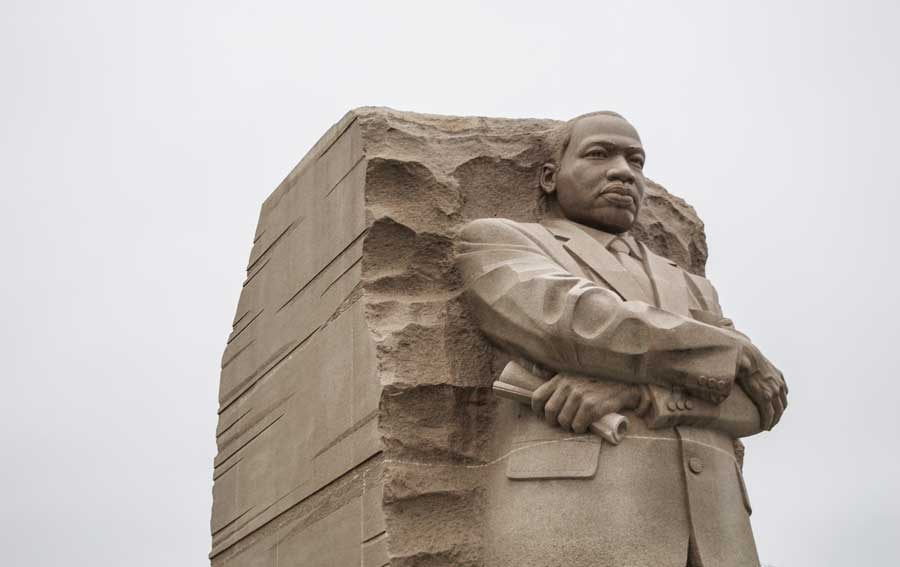Every February, Black History Month rolls around and we begin to witness schools, corporations and small business owners, and a wide variety of civic organizations seizing the moment to educate and commemorate Black history and the contributions that Black Americans have made. This year, before getting swept up in the frenzy of the month, I took the time to learn about the origins of Black History Month. In doing so, it has increased my appreciation and love of the month and the people it attempts to honor.
The origins of the month began with the historian Carter G. Woodson. Woodson was born in 1875 to former slaves. His schooling was inconsistent because he worked in coal mines to supplement his father’s income. Eventually, he entered high school at the age of 20, and went on to get a degree in literature from Berea College in Kentucky. Eventually, he went on to earn a Ph.D. from Harvard University.
It wasn’t until he was excluded from attending American Historical Association conferences that he realized Black history would never be told by White-dominated organizations and their professionals. That’s when Woodson had the idea of creating a new group to preserve and honor Black history.
 In 1915, Woodson, alongside the minister Jesse E. Moorland, founded the Association for the Study of Negro Life and History (ASNLH), an organization dedicated to researching and sharing achievements made by Black Americans and those of African descent. The success of an event in Illinois inspired Woodson and ASNLH to do more. It was a celebration of the fiftieth anniversary of the Emancipation Proclamation sponsored by the state of Illinois. The celebration included exhibits that highlighted the accomplishments and progress of African Americans since slavery. The crowds that gathered to learn and witness the exhibit were in the thousands.
In 1915, Woodson, alongside the minister Jesse E. Moorland, founded the Association for the Study of Negro Life and History (ASNLH), an organization dedicated to researching and sharing achievements made by Black Americans and those of African descent. The success of an event in Illinois inspired Woodson and ASNLH to do more. It was a celebration of the fiftieth anniversary of the Emancipation Proclamation sponsored by the state of Illinois. The celebration included exhibits that highlighted the accomplishments and progress of African Americans since slavery. The crowds that gathered to learn and witness the exhibit were in the thousands.
ASNLH sponsored a national Negro History Week in 1926, choosing the second week of February to coincide with the birthdays of Frederick Douglass and Abraham Lincoln. It was important for Woodson to stick with February because Black communities had been celebrating Douglass during that month since the late 1890s. It worked — Negro History Week was popular. Black history clubs appeared across the country. Teachers needed materials to instruct their students, and the general Black community that was expanding its middle class sought more Black culture and literature.
The Association, led by Woodson, thus worked to produce the materials needed to educate the public about the vibrant and important history of African Americans. They created lessons for teachers, plays for historical performances, and posters of important dates and people. As the movement grew, mayors issued Negro History Week proclamations and, in places like Syracuse, progressive White communities joined Negro History Week with National Brotherhood Week. In the 1940s, a few places like Chicago and West Virginia expanded Negro History Week to a full month-long celebration. Then, on the 50th anniversary of the beginning of Negro History Week in 1976, the Association for the Study of African American History made the shift to Black History Month. President Gerald Ford said that with the celebration “we can seize the opportunity to honor the too-often neglected accomplishments of Black Americans in every area of endeavor throughout our history.”
 Today, Black History Month continues to be recognized as an important month in which we spend time reflecting on Black history, devote educational resources to the topic, and create or engage in civic events to learn about and disseminate more widespread interest and appreciation of the history and accomplishments of African Americans. During this month we recognize and honor Black activists and civil rights pioneers such as Harriet Tubman, Sojourner Truth, Marcus Garvey, Martin Luther King Jr., Malcolm X, and Rosa Parks.
Today, Black History Month continues to be recognized as an important month in which we spend time reflecting on Black history, devote educational resources to the topic, and create or engage in civic events to learn about and disseminate more widespread interest and appreciation of the history and accomplishments of African Americans. During this month we recognize and honor Black activists and civil rights pioneers such as Harriet Tubman, Sojourner Truth, Marcus Garvey, Martin Luther King Jr., Malcolm X, and Rosa Parks.
And there have been Black leaders in industry, politics, culture, and more. In the realm of law, John Mercer Langston was the first Black man to become a lawyer in the U.S., passing the bar in Ohio in 1954. He then went on to become one of the first African Americans ever elected to public office as Town Clerk.
Thurgood Marshall was the first Black man to be appointed to the Supreme Court. Marshall served on the Court for 24 years, having been appointed by President Lyndon B. Johnson.
The first African American woman elected to the House of Representatives was Shirley Chisholm in 1968. She continued to make headlines four years later when she became both the first female candidate and first major party African American candidate to run for president.
When we think of wealth of the past, we seldom think of prominent African Americans like Madam C.J. Walker. Although she was born on a plantation, she became the country’s first self-made female millionaire after creating a line of popular Black hair care products. She went on to create Madame C.J. Walker Laboratories which was a successful hair care company for decades after. Similarly, Robert Johnson became the first African American billionaire when he sold Black Entertainment Television (BET) to the giant media Viacom group in 2001.
As a Black American, I believe it’s important to study and honor those who came before us, so that we can encourage and uplift Black youth to aspire to greatness for the future. I pray we continue to recognize the leaders, activists, prominent individuals as well as ordinary men and women — all who have paved the way for Black Americans to succeed, innovate, and lead.






